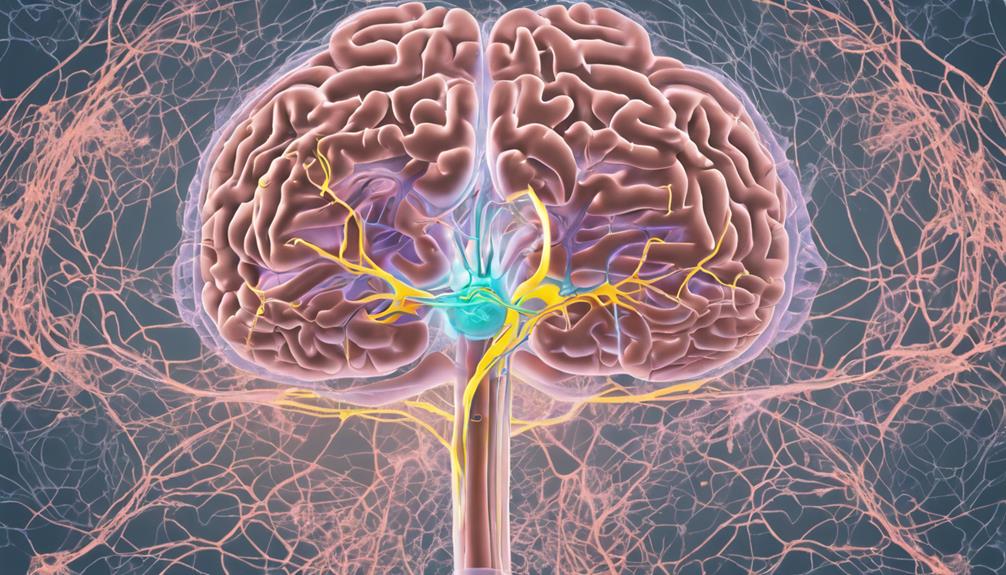web wind
self hypnosis

yoga
Hypnosis is a Pure tie-in to yoga to the fact It Will help you to achieve deeper levels of Comfort Throughout your yoga practice,

meditation
Meditation has been around for thousands of years, as has self-hypnosis, as a tool for deep relaxation, clearing the mind and achieving a state of inner peace.
Self Hypnosis for Self Healing
There are plenty of myths about hypnosis due to what we see on point, somebody eating an onion believing it is an apple, or blanking out and losing management.With self-hypnosis, you’re constantly. And you may use your brain to browse your own ideas and feelings and create results in your own life. Self Hypnosis provides you the resources to utilize engage your emotional power and energy up your daily life, health, success, and happiness.
one week free trial
HELLO! I’M BERIYA SATTA
about me
d.o.b
883 McDowell Street
Nashville, TN 37211
residence
883 McDowell Street
Nashville, TN 37211
specialities
Teaching Yoga and Hypnosis
Mindfulness to Young People
experience
HYPNOSIS INSTRUCTOR
883 McDowell Street
Nashville, TN 37211
MEDITATION GURU
883 McDowell Street
Nashville, TN 37211
YOGA INSTRUCTOR
883 McDowell Street
Nashville, TN 37211

JOIN US FOR A FREE 1-WEEK TRIAL
We are 100% sure that you will experience a better lifestyle with our courses.
happy customers

Merry Satta
Your Website is a valuable and comprehensive resource for Everybody but Particularly for Hypnotherapists, for Example, myself just starting out in this Excellent profession.

Jhone Smith
Fantastic support!!!! Thank you for the instantaneous (and informative!) help.

Beriya Satta
I wish to thank you for your warm welcome. I’m rather enthusiastic about this new find! I’m only about a year for a hypnotist and had been trying to branch out a little bit from weight reduction and smoking. This is an Excellent new start for me.
working hours
Monday – Friday8.00AM – 10.00PM
Saturday11.00AM – 10.00PM
SundayClosed
Latest Post
Understanding Theoretical Perspectives on Hypnotic Suggestibility
Exploring theoretical perspectives on hypnotic suggestibility involves dissecting historical milestones, the influence of expectations, socio-cognitive theories, dissociation theories, state theories, and response expectancy theory. Neurobiological mechanisms also play a key role in understanding individual differences in responsiveness to hypnosis. These theoretical frameworks provide insight into the complexities of hypnotic suggestibility, encompassing historical evolution, cognitive processing, neural underpinnings, and implications for clinical practice and research. By grasping these perspectives, one can unravel the intricate dynamics that shape how individuals respond to hypnotic suggestions and further enhance their knowledge in this fascinating field.
Historical Overview

Examining the historical development of research on hypnotic suggestibility reveals a rich tapestry of theoretical perspectives and empirical investigations. The influence of Mesmerism, with its focus on the power of suggestion and altered states of consciousness, laid the foundation for early experiments in hypnosis.
Pioneering researchers like James Braid and Jean-Martin Charcot furthered the understanding of hypnotic phenomena through systematic observation and experimentation. Braid, often considered the father of hypnotherapy, introduced the term 'hypnosis' and emphasized the role of suggestion in inducing trance states. Charcot, on the other hand, focused on the neurological aspects of hypnosis, exploring its connection to hysteria and the subconscious mind.
These early experiments set the stage for the scientific study of hypnotic suggestibility, paving the way for future researchers to delve deeper into the mechanisms underlying hypnotic phenomena.
Role of Expectations
The influence of expectations on hypnotic suggestibility has been a focal point in empirical investigations, shedding light on the intricate interplay between individual beliefs and responsiveness to hypnotic suggestions.
Expectations play a significant role in shaping suggestibility levels, with studies indicating a strong correlation between an individual's belief systems and their susceptibility to hypnosis. This phenomenon can be attributed to the placebo effect, whereby the mere expectation of a response to hypnotic suggestions can lead to actual cognitive processing and behavioral changes.
Belief systems form the foundation upon which expectations are built, influencing how an individual interprets and responds to hypnotic cues. Individuals with strong beliefs in the efficacy of hypnosis are more likely to exhibit higher levels of suggestibility compared to skeptics.
Cognitive processing also plays a crucial role in mediating the relationship between expectations and hypnotic suggestibility, as the brain's response to suggestions is influenced by pre-existing beliefs and mental frameworks. Understanding the role of expectations in hypnotic suggestibility can provide valuable insights into the mechanisms underlying hypnosis and its therapeutic applications.
Socio-Cognitive Theories

Socio-cognitive theories in the realm of hypnotic suggestibility offer a framework for understanding how social and cognitive factors interact to influence an individual's responsiveness to hypnotic suggestions.
These theories propose that hypnotic responses are shaped by a combination of social influence and cognitive processing. Social influence refers to the impact of social contexts, such as the authority of the hypnotist or the expectations set by the environment, on an individual's suggestibility.
Cognitive processing involves how individuals perceive, interpret, and respond to hypnotic suggestions based on their cognitive abilities, beliefs, and past experiences.
Research in socio-cognitive theories has shown that individuals with higher levels of social suggestibility, who are more prone to social influence, tend to exhibit greater hypnotic responsiveness.
Moreover, cognitive factors, such as attentional focus and the ability to engage in imaginative processes, play a crucial role in determining the effectiveness of hypnotic suggestions.
Dissociation Theories
Within the realm of hypnotic suggestibility, Dissociation Theories offer a distinct perspective on the underlying psychological processes that contribute to an individual's responsiveness to hypnotic suggestions. Dissociation Theories propose that hypnotic suggestibility arises from a division in consciousness, leading to alterations in perception, memory, and identity.
According to this theoretical framework, individuals entering a hypnotic state experience a separation between different components of consciousness, such as a detachment from reality or a heightened focus on internal experiences. These altered states are believed to facilitate increased responsiveness to hypnotic suggestions by allowing for greater influence over unconscious processes.
Research supporting Dissociation Theories suggests that hypnotic suggestibility is associated with the capacity to dissociate, enabling individuals to engage in unconscious processes that are typically inaccessible during normal waking states. By exploring the interplay between altered states of consciousness and suggestibility, Dissociation Theories shed light on the intricate mechanisms underlying hypnotic responsiveness and highlight the role of dissociative experiences in shaping hypnotic phenomena.
State Theories

State Theories of hypnotic suggestibility posit that the responsiveness to hypnotic suggestions is influenced by the individual's specific psychological and physiological state during the hypnotic experience. Proponents of State Theories suggest that hypnotic suggestibility is linked to altered states of consciousness, where individuals may exhibit heightened focus, absorption, and suggestibility. These altered states can lead to changes in perception, cognition, and subjective experiences, making individuals more receptive to hypnotic suggestions.
Research in this area has focused on identifying the underlying psychological and physiological mechanisms that contribute to these altered states during hypnosis. Studies have explored brain activity patterns, neurotransmitter levels, and subjective reports of individuals undergoing hypnosis to better understand the state-dependent nature of hypnotic suggestibility.
Response Expectancy Theory
Response Expectancy Theory in the realm of hypnotic suggestibility posits that the individual's expectations and beliefs regarding the outcomes of hypnosis significantly influence their responsiveness to hypnotic suggestions. This theory emphasizes the role of cognitive processes in shaping an individual's response to hypnotic cues.
According to this perspective, an individual's attentional focus on the hypnotic suggestion, coupled with their pre-existing beliefs and expectations about hypnosis, determines the extent to which they will respond to the suggestion.
Research in this area suggests that individuals who hold strong beliefs in the efficacy of hypnosis are more likely to respond positively to hypnotic suggestions. The cognitive processes involved in processing and interpreting hypnotic cues play a crucial role in determining the individual's level of suggestibility.
Additionally, the individual's attentional focus on the hypnotic suggestions further enhances the suggestibility effect.
Neurobiological Perspectives

How do neurobiological perspectives contribute to our understanding of hypnotic suggestibility?
Research in neurobiology has shed light on the neural mechanisms underlying hypnotic suggestibility levels. Studies using neuroimaging techniques such as fMRI have shown that individuals with high hypnotic suggestibility exhibit distinct patterns of brain activity compared to those with low suggestibility levels. Specifically, regions involved in attention, perception, and cognitive control have been found to be more active in highly suggestible individuals during hypnotic inductions.
Moreover, neurobiological research suggests that hypnotic suggestibility may be linked to the functioning of the frontal lobes, which are crucial for higher-order cognitive processes. The prefrontal cortex, in particular, plays a significant role in regulating suggestibility by modulating attention and inhibitory control. Understanding these neurobiological underpinnings can help elucidate the individual differences in hypnotic responsiveness and provide insights into how suggestions are processed at the neural level.
Frequently Asked Questions
How Can Hypnotic Suggestibility Be Measured Accurately?
Accurate measurement of hypnotic suggestibility involves utilizing research methods that ensure validity and standardization across individuals. By considering individual differences and implementing standardized protocols, researchers can effectively assess and quantify hypnotic suggestibility in a reliable manner.
Are There Any Ethical Concerns Related to Using Hypnosis?
Ethical considerations in utilizing hypnosis are paramount, aligning with professional standards. Safeguards to protect individuals' autonomy, confidentiality, and well-being must be upheld. Adherence to ethical guidelines ensures responsible and beneficial application of hypnosis.
Can Hypnotic Suggestibility Be Influenced by Cultural Factors?
Cultural influences can significantly impact hypnotic suggestibility accuracy. Research suggests that cultural beliefs, norms, and experiences can shape an individual's responsiveness to hypnotic suggestions. Understanding these factors is crucial in evaluating suggestibility across diverse populations.
Is There a Genetic Component to Hypnotic Suggestibility?
Research suggests a potential genetic predisposition to hypnotic suggestibility based on family studies. Understanding the heritability of this trait can provide valuable insights into the interplay between genetics and suggestibility, contributing to the field's empirical knowledge.
What Are the Long-Term Effects of Repeated Hypnosis Sessions?
Repeated hypnosis sessions can lead to significant cognitive changes and alterations in behavioral patterns over the long term. Research suggests that these effects may include improved focus, reduced anxiety, and enhanced self-regulation skills.
Conclusion
In conclusion, the theoretical perspectives on hypnotic suggestibility offer valuable insights into the underlying mechanisms and factors influencing individuals' responsiveness to hypnotic suggestions.
By examining historical developments, expectations, socio-cognitive theories, dissociation theories, state theories, response expectancy theory, and neurobiological perspectives, researchers can gain a comprehensive understanding of the complex nature of hypnotic suggestibility.
Further research in this area is crucial for advancing our knowledge and enhancing clinical applications of hypnosis.
Boosting Sports Performance With Hypnosis: 10 Tips
Hypnosis offers athletes a potent method to boost sports performance by delving into the subconscious mind. Reprogramming beliefs can lead to improved focus, confidence, and resilience, as supported by research. Setting clear performance goals, visualizing success, and enhancing focus and concentration are key tips to maximize results. Overcoming performance anxiety, building mental toughness, and incorporating hypnosis into training can further elevate athletic performance. Utilizing these strategies can help athletes achieve their full potential on the field or court. Additional insights on utilizing hypnosis for sports performance are available in the comprehensive guide above.
Understanding the Power of Hypnosis

By delving into the realm of the subconscious mind, hypnosis offers a unique approach to enhancing sports performance. The benefits of hypnosis in sports are rooted in its ability to tap into the power of mental conditioning. Through hypnosis, athletes can reprogram their subconscious beliefs and behaviors, leading to improved focus, confidence, and overall performance.
Mental conditioning plays a crucial role in sports success. By using hypnosis techniques, athletes can address limiting beliefs, fears, and mental blocks that may be hindering their performance. Through guided imagery and positive suggestions, hypnosis helps athletes cultivate a winning mindset and develop the mental resilience needed to excel under pressure.
Research has shown that hypnosis can significantly improve athletic performance by enhancing concentration, reducing anxiety, and boosting self-confidence. By harnessing the power of the subconscious mind, athletes can unlock their full potential and achieve peak performance levels.
Hypnosis serves as a valuable tool in sports psychology, offering athletes a holistic approach to mental training that complements physical conditioning and skill development.
Setting Clear Performance Goals
Effective sports performance begins with the establishment of clear and measurable performance goals that guide athletes towards success. Goal setting is a fundamental aspect of mental preparation in sports, helping athletes focus their efforts, track progress, and stay motivated.
When setting performance goals, it is essential to make them specific, challenging yet achievable, and time-bound. Specific goals provide athletes with a clear target to work towards, while challenging yet achievable goals push them to improve without becoming discouraged. Time-bound goals create a sense of urgency and help athletes prioritize their actions effectively.
Athletes should consider setting both short-term and long-term performance goals to maintain motivation and track progress over time. Short-term goals can serve as building blocks towards achieving larger objectives, while long-term goals provide athletes with a broader vision of their desired outcomes.
Visualizing Success Through Hypnosis

Utilizing hypnosis techniques to visualize success has shown promise in enhancing sports performance through mental rehearsal and focus enhancement. Mental imagery, a key component of hypnosis, involves creating vivid mental pictures of successfully executing skills or achieving desired outcomes. By repeatedly visualizing oneself performing at a high level, athletes can enhance their confidence, reduce anxiety, and improve their overall performance on the field or court.
Incorporating positive affirmations during hypnosis sessions further reinforces the visualization process. Positive affirmations are statements that affirm desired outcomes or qualities, such as 'I am strong and focused' or 'I excel under pressure.' These affirmations help athletes cultivate a positive mindset, build self-belief, and overcome mental barriers that may impede their performance.
Research suggests that combining mental imagery with positive affirmations during hypnosis can lead to improved athletic performance by enhancing motivation, increasing mental resilience, and sharpening focus. Athletes who regularly practice visualization techniques with hypnosis may experience enhanced concentration, improved decision-making, and a greater sense of control during competitive situations.
Improving Focus and Concentration
Enhancing focus and concentration is a critical aspect of optimizing sports performance through hypnosis techniques. Mental strength plays a vital role in achieving peak athletic performance, and hypnosis can be a powerful tool to enhance this aspect.
By utilizing hypnosis for cognitive enhancement, athletes can train their minds to maintain unwavering focus during intense competition.
Hypnosis can help athletes develop a heightened sense of awareness, allowing them to block out distractions and stay fully engaged in the present moment. Through guided imagery and suggestion, hypnotherapy can reinforce positive thought patterns, boost confidence, and improve concentration levels.
Studies have shown that hypnosis can effectively enhance cognitive functions such as attention, memory, and decision-making skills. By incorporating hypnosis into their training regimen, athletes can sharpen their mental acuity and optimize their performance on the field or court.
Overcoming Performance Anxiety

Athletes can significantly benefit from harnessing hypnosis techniques to address and overcome performance anxiety, a common challenge that can impact their ability to perform at their best during competitions. Performance anxiety can manifest in various forms such as nervousness, self-doubt, and fear of failure, leading to decreased confidence and suboptimal performance. By utilizing hypnosis, athletes can learn to manage their anxiety more effectively and develop strategies to remain calm and focused under pressure.
Pre-game rituals can play a crucial role in helping athletes alleviate performance anxiety. Establishing a routine that includes relaxation techniques, visualization, and positive affirmations can help athletes enter a state of optimal readiness. These rituals not only serve to calm the mind but also create a sense of familiarity and control, reducing the impact of anxiety on performance.
Moreover, the mind-body connection is an essential aspect of overcoming performance anxiety. Hypnosis can help athletes cultivate a strong connection between their mental and physical states, enabling them to better regulate their emotions and physiological responses during high-pressure situations. By enhancing this connection, athletes can improve their overall performance and achieve greater success in their respective sports.
Enhancing Motivation and Drive
To further optimize sports performance, it is imperative to explore techniques that can bolster an athlete's motivation and drive towards achieving their goals. Hypnosis techniques and mental conditioning can play a significant role in enhancing an athlete's motivation levels. Through hypnosis, athletes can tap into their subconscious minds to reinforce positive beliefs, visualize success, and maintain a high level of motivation.
One effective hypnosis technique for enhancing motivation is creating mental imagery of achieving desired goals. By repeatedly visualizing success and the satisfaction that comes with it, athletes can boost their motivation to work towards those goals. Additionally, hypnosis can be used to instill a strong sense of determination and perseverance in athletes, helping them stay focused and driven even in the face of challenges.
Mental conditioning involves training the mind to stay motivated and driven through various mental exercises and strategies. This can include setting specific, achievable goals, developing a positive mindset, and practicing self-talk techniques to maintain motivation levels during tough times.
Utilizing Hypnosis for Recovery

Utilizing hypnosis as a tool for aiding in the recovery process post-injury can offer athletes a valuable method to enhance physical healing and mental resilience. Hypnosis for relaxation is a technique that can help athletes manage pain, reduce stress, and promote overall well-being during the recovery phase. By inducing a state of deep relaxation through hypnosis, athletes can experience relief from physical discomfort and accelerate the healing process.
Moreover, mental resilience through hypnosis plays a crucial role in the recovery journey. Athletes can use hypnosis to cultivate a positive mindset, enhance their coping mechanisms, and maintain motivation throughout the rehabilitation period.
Boosting Confidence Levels
Enhancing confidence levels through hypnosis can significantly impact an athlete's performance on the field or court. Confidence building is a fundamental aspect of mental strength in sports. By using hypnosis to target and reframe negative beliefs or self-doubt, athletes can cultivate a more positive belief system that enhances their overall confidence.
One powerful tool within hypnosis for boosting confidence levels is encouraging positive self-talk. Athletes can learn to replace negative inner dialogues with affirming statements that reinforce their abilities and strengths. This shift in self-talk can lead to a more resilient mindset and increased self-assurance during competitions.
Moreover, hypnosis can help athletes develop a robust belief system in their skills and capabilities. By accessing the subconscious mind, hypnotherapy can instill deep-seated beliefs in athletes' potential, fostering a strong sense of self-belief that transcends moments of doubt or pressure.
Creating Mental Toughness

Developing mental toughness is a critical component in optimizing athletic performance and resilience in the face of challenges. Building resilience and mental strength is essential for athletes to navigate the pressures and setbacks that come with competitive sports. Athletes with high levels of mental toughness can maintain focus, motivation, and composure even in high-stress situations, ultimately enhancing their overall performance.
To enhance mental toughness, athletes can utilize various strategies such as visualization techniques, mindfulness practices, goal-setting, and positive self-talk. These methods help athletes stay centered, motivated, and mentally resilient throughout training and competitions.
Additionally, seeking support from sports psychologists or mental performance coaches can provide athletes with tailored strategies to strengthen their mental fortitude. Research has shown that athletes with greater mental toughness exhibit improved performance, increased confidence, and better emotional regulation.
Incorporating Hypnosis Into Training
Integrating hypnosis into athletic training programs can offer athletes a unique method to enhance their mental focus and performance. By incorporating hypnosis techniques, athletes can tap into their subconscious mind to strengthen mental conditioning, improve confidence levels, and overcome performance barriers.
One key hypnosis technique used in sports is visualization, where athletes vividly imagine themselves achieving their goals, enhancing muscle memory and mental rehearsal.
Hypnosis can aid in reducing performance anxiety and increasing concentration levels during training and competitions. Through hypnotherapy sessions, athletes can learn to manage stress, control emotions, and develop a resilient mindset necessary for peak performance.
Mental conditioning through hypnosis can also help athletes stay motivated, set clear goals, and maintain a positive attitude towards training and competition.
Frequently Asked Questions
Can Hypnosis Improve Sports Performance for Beginners?
Mental preparation plays a crucial role in sports performance for beginners. Hypnosis can aid in enhancing focus, reducing anxiety, and building confidence. Through targeted suggestions, individuals can develop a positive mindset conducive to athletic success.
Is Hypnosis a Temporary or Long-Term Performance Enhancer?
Hypnosis can offer both temporary and long-term performance enhancements in sports. While immediate effects may vary, consistent practice can lead to enduring benefits. It primarily impacts mental aspects, like focus and confidence, which can translate to improved physical performance over time.
How Can Athletes Find a Qualified Sports Hypnotherapist?
To ensure optimal outcomes, athletes seeking a sports hypnotherapist should conduct a thorough qualifications assessment. Look for credentials such as certifications from reputable organizations, experience working with athletes, and positive testimonials. Selecting a qualified professional is crucial for effective results.
Can Hypnosis Help With Specific Sports-Related Injuries?
Hypnosis can aid in injury prevention by enhancing mental resilience, helping athletes develop coping strategies for stressors that contribute to injuries. Additionally, it can assist in pain management and accelerate recovery by addressing psychological components of physical ailments.
Are There Any Potential Side Effects of Using Hypnosis for Sports Performance?
When considering hypnosis for sports performance enhancement, it's crucial to acknowledge potential negative outcomes and risks involved. These may include unintended psychological effects, false memories, or exacerbation of pre-existing mental health conditions. Professional guidance is advised.
Conclusion
In conclusion, hypnosis can be a powerful tool for enhancing sports performance. It achieves this by improving focus, overcoming anxiety, boosting confidence, and promoting mental toughness.
By setting clear goals, visualizing success, and incorporating hypnosis into training, athletes can maximize their potential and achieve peak performance. Research supports the effectiveness of hypnosis in sports psychology, making it a valuable resource for athletes looking to excel in their sport.
Applying Social-Cognitive Theories to Hypnosis Techniques
Applying social-cognitive theories to hypnosis techniques reveals the significant impact of self-efficacy, observational learning, social modeling, cognitive reappraisal, self-regulation, and vicarious experiences on hypnotic responses. Self-efficacy plays a vital role in the receptiveness to hypnotic suggestions, while observational learning through imitation enhances hypnotic outcomes. Social modeling techniques and cognitive reappraisal strategies shape hypnotic experiences, and self-regulation and vicarious experiences contribute to successful hypnotic states. These theories offer valuable insights into optimizing hypnosis techniques for better results.
The Role of Self-Efficacy

The concept of self-efficacy plays a crucial role in understanding the effectiveness of hypnosis techniques. Self-efficacy refers to an individual's belief in their ability to successfully perform a specific task or achieve a particular outcome.
In the context of hypnosis, individuals with higher levels of self-efficacy are more likely to respond positively to hypnotic suggestions and experience improved performance outcomes. Research has shown that confidence in one's abilities can enhance the receptiveness to hypnotic suggestions, leading to a deeper state of hypnosis and increased effectiveness of the intervention.
Individuals with low self-belief may be more resistant to the suggestions given during hypnosis, limiting the overall impact on their behavior or well-being.
Observational Learning in Hypnosis
Exploring how observational learning influences the efficacy of hypnosis techniques offers valuable insights into the mechanisms underlying hypnotic responsiveness. Observational learning in hypnosis involves the process of acquiring new behaviors or skills by witnessing and imitating others. This phenomenon is believed to be mediated by mirror neurons in the brain, which activate when an individual observes another person performing a specific behavior, leading to a neural representation of the observed action.
In the context of hypnosis, individuals may unconsciously imitate the behaviors and responses of the hypnotist during a session. This behavior imitation can contribute to the effectiveness of hypnotic suggestions, as the observer's brain mirrors the hypnotist's actions, creating a sense of rapport and receptivity to the suggestions being provided.
Social Modeling Techniques

Analyzing the impact of social modeling techniques on hypnotic responsiveness provides valuable insights into the role of social influence in shaping individuals' hypnotic experiences. Social modeling involves observing and imitating behaviors demonstrated by others, which can significantly influence hypnotic suggestibility.
Mirror neurons, a key component in observational learning, play a crucial role in this process by firing both when an individual performs an action and when they observe someone else performing the same action. This mechanism suggests that witnessing hypnotic behaviors during a social modeling session may activate mirror neurons in the observer, potentially enhancing their receptivity to hypnotic suggestions.
Furthermore, social reinforcement within a modeling context can strengthen the likelihood of individuals replicating hypnotic responses. When individuals witness positive outcomes or rewards following a modeled hypnotic behavior, they are more inclined to imitate those behaviors themselves.
This cycle of observation, imitation, and social reinforcement underscores the significance of social modeling techniques in shaping hypnotic experiences and outcomes.
Cognitive Reappraisal Strategies
Utilizing cognitive reappraisal strategies in the context of hypnosis involves employing mental reframing techniques to alter individuals' perceptions of hypnotic suggestions and experiences. By incorporating emotional regulation and cognitive restructuring, individuals can effectively manage their emotional responses and reinterpret their thoughts during hypnosis.
Emotional regulation plays a crucial role in cognitive reappraisal strategies within hypnosis. Through hypnosis, individuals can learn to regulate their emotions by altering their cognitive appraisals of specific situations or triggers. This process enables individuals to modify their emotional responses, leading to a more positive and adaptive experience during hypnosis sessions.
Moreover, cognitive restructuring involves changing the underlying cognitive processes that influence individuals' emotional reactions. By reframing negative thoughts or beliefs into more positive and constructive ones, individuals can enhance their emotional well-being and overall hypnotic experience. This restructuring of cognitive patterns fosters a healthier mental state and facilitates a more profound engagement with hypnotic suggestions.
Self-Regulation in Hypnotic States

Self-regulation within hypnotic states involves individuals actively managing their cognitive, emotional, and behavioral responses during the hypnotic experience. Emotional regulation plays a crucial role in maintaining a sense of calm and control during hypnosis. Techniques such as mindfulness, which enhance self-awareness and focus on the present moment, can aid in emotional regulation within hypnotic states.
By fostering self-awareness, individuals can better recognize and understand their emotional responses, allowing them to apply self-control strategies to modulate these emotions effectively.
Self-control strategies encompass various techniques aimed at regulating behavior and thoughts. These strategies can include cognitive restructuring, where individuals reframe their thoughts to promote positive emotions and behaviors during hypnosis. Additionally, individuals can utilize relaxation techniques to manage stress and anxiety, promoting a state of relaxation conducive to the hypnotic experience.
Vicarious Experiences in Hypnosis
Understanding vicarious experiences in hypnosis involves exploring how individuals can vividly imagine and internalize sensations, emotions, and actions observed in others during the hypnotic state. This phenomenon is closely linked to empathetic connection and hypnotic mirroring, where individuals in a hypnotic state may replicate the experiences of others as if they were their own.
Through this process, individuals can share experiences on a deep emotional level, fostering a sense of therapeutic empathy between the hypnotist and the subject. Empathetic connection in hypnosis allows individuals to tap into the subconscious mind, enabling them to mirror the thoughts and feelings of others.
This shared experience can enhance the therapeutic process by creating a profound sense of understanding and connection between the hypnotist and the subject. By internalizing the experiences of others, individuals in a hypnotic state can gain insights into their own emotions and behaviors, leading to potential healing and personal growth.
Frequently Asked Questions
Can Hypnosis Make Me Reveal My Deepest Secrets?
Hypnosis can influence suggestibility and memory recall, potentially leading individuals to reveal personal information. Ethical considerations arise regarding the invasion of privacy and the truthfulness of responses obtained. Psychological implications highlight the need for caution in utilizing hypnosis for uncovering deep secrets.
Is Hypnosis Effective for Overcoming Phobias?
Hypnosis has shown effectiveness in overcoming phobias by targeting the fear response through relaxation techniques and cognitive restructuring. By inducing a state of focused attention, hypnosis can promote anxiety reduction and help individuals confront and manage their phobias.
Can Hypnosis Help With Chronic Pain Management?
Hypnosis can be a valuable tool in chronic pain management by influencing pain perception and harnessing the mind-body connection. Research suggests that hypnosis can help individuals better cope with pain, offering a potential complementary approach to traditional pain management strategies.
Are There Risks Involved in Using Hypnosis?
When considering the use of hypnosis, ethical considerations, potential drawbacks, and safety concerns must be carefully evaluated. Psychological risks, such as false memories or increased suggestibility, highlight the importance of a cautious approach.
How Long Does It Take to See Results From Hypnosis?
The timing for observing results from hypnosis varies widely among individuals due to personalized timelines and unique responses. Immediate changes can occur for some, while others may experience long-term effects over extended periods.
Conclusion
In conclusion, the application of social-cognitive theories to hypnosis techniques offers valuable insights into how individuals can enhance their self-efficacy. It also helps them learn from observational experiences and utilize social modeling techniques. Engaging in cognitive reappraisal strategies, regulating behavior in hypnotic states, and benefiting from vicarious experiences are all crucial aspects that these theories can help enhance.
By understanding and implementing these theories, practitioners and individuals can optimize the effectiveness of hypnosis as a therapeutic tool.
take any class at your free time
flexibly for whole month
address
883 McDowell Street, Nashville, TN 37211.
info@webwind.net
contact
1-931-320-8895



